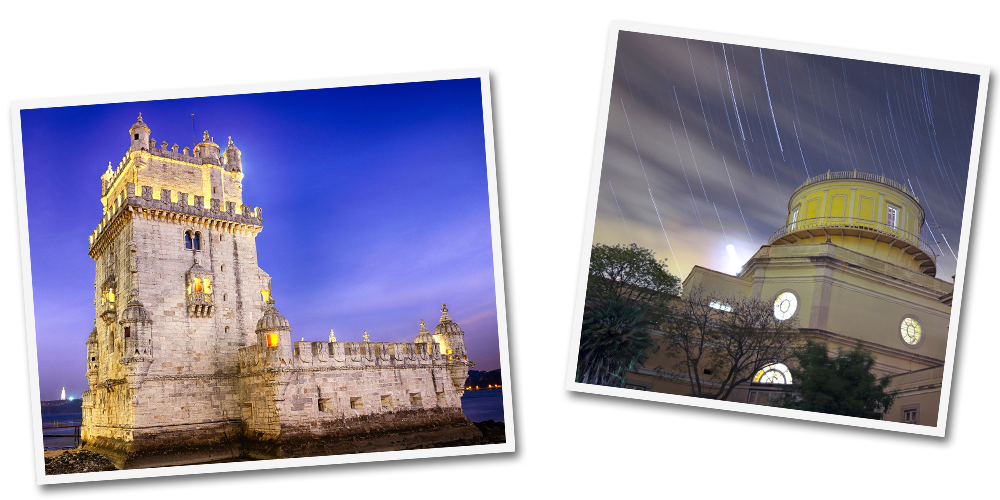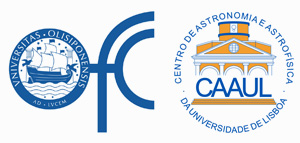The Centre for Astronomy and Astrophysics of the Faculty of Sciences of the University of Lisbon (CAAUL) is located in the historical grounds of the Astronomical Observatory of Lisbon (OAL). The OAL is a part of the University of Lisbon since 1995, and maintains a natural and intense synergy with CAAUL, which is beneficial for both institutions: the basic infrastructure of the OAL provides the ideal conditions for modern astronomical research and the expertise from CAAUL's members supports the museological and public outreach OAL activities. OAL technical staff is shared with CAAUL, providing support to its activities. The rich historical setting has also proven to be an important asset in fostering numerous outreach activities and in attracting students to research in space science and astronomy.
CAAUL is currently the portuguese scientific group involved in the largest number of ESA projects. CAAUL's recent Solar System research has been focused on wind measurements in the atmospheres of Titan and Venus using Doppler velocimetry techniques, based either on the solar Fraunhofer spectrum reflected by a planetary cloud deck or atmospheric haze, or on atmospheric emission lines. In addition, observations with the Visible and Infrared Thermal Imaging Spectrometer onboard the Venus Express mission and with VLT+UVES have been used (e.g., Luz et al. 2011, 2008) to derive winds in the polar region of Venus. Resources committed to the project include the CAAUL "Nonius Cluster" grid (comprising 14 Dell PowerEdge servers, each with two 2.66 GHz Xeon Quadcore CPUs, 8GB of RAM, and 4x750GB hard drives). The OAL is connected through a fast 100 Mbps fiber optics link and is one of the partners of the GridPT project, an infrastructure dedicated to scientific data analysis in Earth and Space Sciences which is part of the National Geophysics Network.

Dr. David Luz is Vice-Director of CAAUL. He is an expert on the dynamics of planetary atmospheres and on Doppler velocimetry techniques. He is Co-Investigator in the VIRTIS/VEX instrument team and a member of the dynamics working group and of the Support Investigation team (currently led by Dr. Thomas Widemann), that coordinates ground-based support to the mission. Dr. David Luz will be science manager and executive manager of the Portuguese team. He will be responsible for the scientific validation of deliverables, for the temporal execution of the tasks, and for the elaboration of progress and final reports. He will represent the team before the host institute, the Faculty of Sciences of the University of Lisbon.




